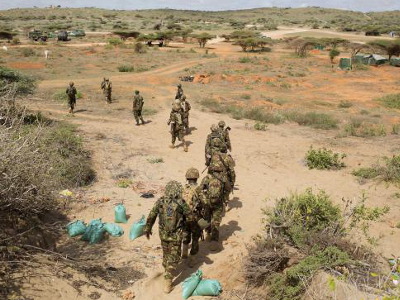
Al-Shabaab in Somalia remains unpredictable and has the ability to conduct devastating attacks, the United Nations Security Council (UNSC) was informed by ATMIS (African Union Transition Mission in Somalia) Head Ambassador Mohamed El-Amine Souef.
The ambassador last week addressed the top UN body on the situation in the East African country.
As an example of Al-Shabaab unpredictability, Souef pointed to the recent attack on Somali Security Forces (SSF) in El-Dheer, Galmudug, as well a mortar attack on the ATMIS camp at Baidoa, Southwest State. These, he said, were reminders of Al-Shabaab’s resilience as well as its ability to use asymmetric tactics and execute complex operations on civilian and security targets.
“SSF, supported by ATMIS and increasingly local communities, achieved significant gains in the fight against Al-Shabaab. Sustained support from international partners is essential to maintain this momentum,” he told the 15-member UNSC. This, according to Souef, is “vital” as the Somali federal government works to respond to community conflicts and rivalries.
On the security transition which will see SSF take over national security duties from ATMIS, the phase three drawdown of two thousand troops is set for completion at the end of this month (June). The remaining two thousand ATMIS troops and support personnel are set to exit by the end of September.
This arrangement, Souef said, will ensure SSF units are “adequately prepared to assume security responsibilities while continuing the offensive against Al-Shabaab”.









